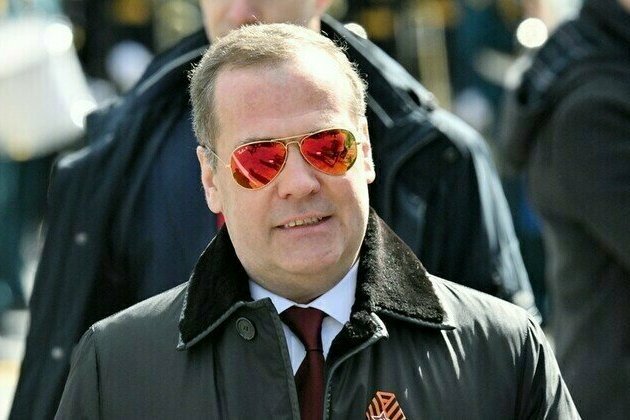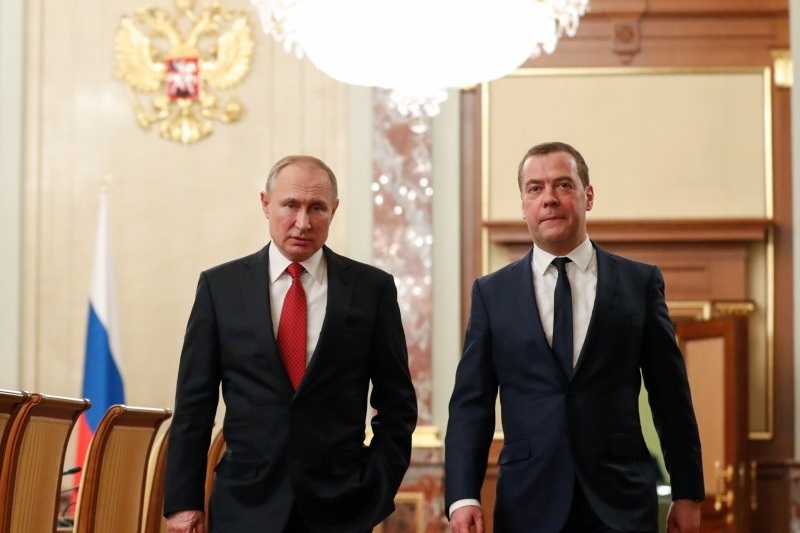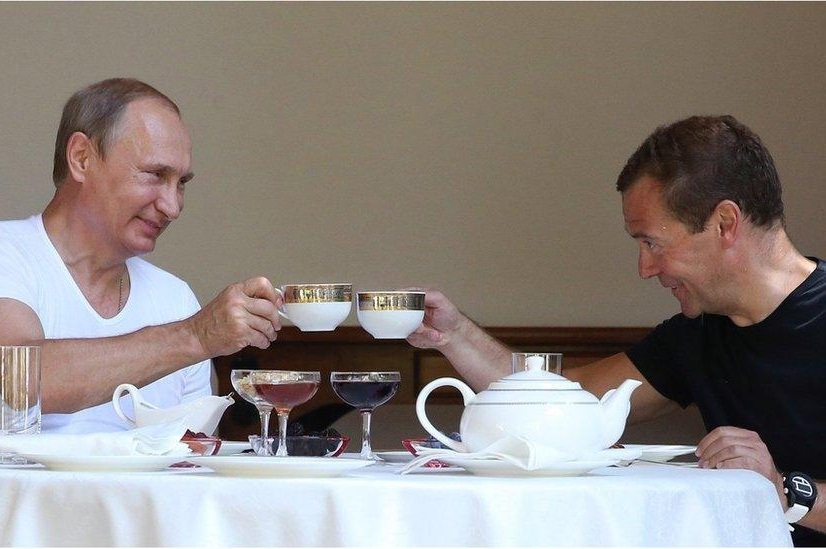Dmitry Medvedev and Cockroaches Breeding in a Jar
TEHRAN (Defapress) - Dmitry Medvedev, who once stood alongside Barack Obama as Russia's president speaking about the importance of U.S.-Russia cooperation in solving global problems, has now taken a radically different path. Currently serving as deputy chairman of Russia’s Security Council, he has emerged this week as an unofficial Kremlin spokesperson with fiery rhetoric, warning twice that the policies of the Trump administration could push the two countries toward nuclear war.

Medvedev referenced Russia’s nuclear capabilities, alluding to the apocalyptic TV series The Walking Dead, and spoke of Russia’s capacity for automated nuclear strikes. His remarks came after Trump announced new sanctions against Russia and set a deadline for Vladimir Putin to end the war in Ukraine.
The Medvedev of today is a far cry from the man who, in 2008, became Russia’s 42-year-old president. A lawyer with no background in security services (unlike Putin, a former KGB officer), he positioned himself as a liberal technocrat, fluent in internet culture and eager to modernize Russia’s economy while fighting corruption. Yet his presidency was largely seen as a temporary interlude, allowing Putin to circumvent constitutional term limits and return to power.
After Medvedev’s presidency ended in 2012 and Putin reassumed the role, Medvedev transformed from a relatively liberal technocrat into a hardline nationalist, using aggressive social media posts to taunt Russia’s enemies. For instance, in a 2009 CNN interview, he spoke of the need for good relations with the West, but in May of this year, responding to Trump’s remarks about "Putin playing with fire," he tweeted: "The only truly bad thing is World War III. I hope Trump understands that."

This shift in tone, marked by nationalist rhetoric and hardline stances, appears aimed at maintaining the trust of the ruling United Russia party. In 2012, he told lawmakers: "People often call me a liberal. Honestly, I’ve never held liberal beliefs." While president, he had called corruption "absolutely unacceptable," yet later, as Russia’s prime minister, he became the target of an investigation by Alexei Navalny’s Anti-Corruption Foundation, which accused him of amassing a vast empire of luxury estates, yachts, and vineyards across Russia. The report, which garnered 14 million YouTube views, was dismissed by Medvedev’s spokesperson, Natalya Timakova, as "propaganda," but it sparked street protests against him.
In 2020, when Putin moved to amend the constitution to consolidate his power, Medvedev abruptly resigned as prime minister. Since then, from his perch on Russia’s Security Council, he has launched scathing attacks against Ukrainians and Western leaders. With 1.7 million Telegram followers and nearly 7 million on X (in Russian and English), he has used demeaning language, such as calling Kyiv’s leaders "cockroaches breeding in a jar", and in a recent speech, he displayed images of Trump and Zelensky as Muppets, demanding the "destruction of Kyiv’s neo-Nazi regime." He has repeatedly invoked the term "Nazi" to attack opponents, including German Chancellor Friedrich Merz, who once suggested striking the Crimean Bridge.

Medvedev has also shown no hesitation in making nuclear threats. In 2022, he dismissed sanctions against the world’s largest nuclear power as "absurd" and a "threat to humanity." His provocations often target individuals, for example, warning Trump: "Don’t step on sleepy Joe’s path."
Analysts believe this bellicose rhetoric is part of a Kremlin information strategy, using Medvedev to "heighten fear and panic among Western decision-makers." However, some observers, like Anatol Lieven of the Quincy Institute, dismiss these exchanges as "pure theater," noting that Russia, which has refrained from using nuclear weapons over the past three years, is unlikely to escalate over new U.S. sanctions.
